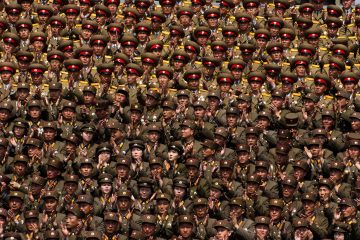
OxPol Blogcast. Nuclear Security with Edward Howell
What does security mean to different people, in different places, under different circumstances? And what do academics view as the most pressing security issues for the future? In this bonus episode, Eden Raviv speaks to Dr. Edward Howell, Lecturer in Politics at Christ Church at the University of Oxford, to try to understand the concept. Dr. Howell’s research focuses on the politics and international relations of North Korea, the Korean Peninsula and East Asia. Join them as they discuss his latest book, North Korea and the Global Nuclear Order: When Bad Behaviour Pays (2023) and talk about North Korea, nuclear proliferation and bridging the divide between academia and policy. Listen on:
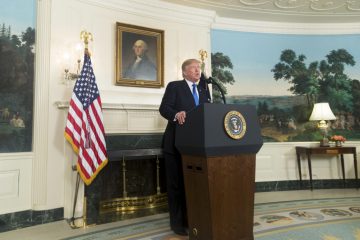
Trump’s Nuclear Gambit Threatens US Security
Three years ago, US-Iranian relations could not have been better. Once declared part of the ‘Axis of Evil’ by then-president George W. Bush, the Iran Nuclear Deal signed by his successor Barack Obama heralded a new age of more constructive ties with Tehran and the promise of greater nuclear security. While critics raised concerns that Iran would renege on the deal, these fears had proven unfounded so far – the IAEA confirmed that Iran has complied with its obligations under the agreement. Nonetheless, the Trump administration withdrew the US from the nuclear deal. Additionally, Trump has re-imposed all sanctions removed in 2015. With trust between Washington and Tehran in tatters and US carrier groups deployed to the Persian Gulf, the …
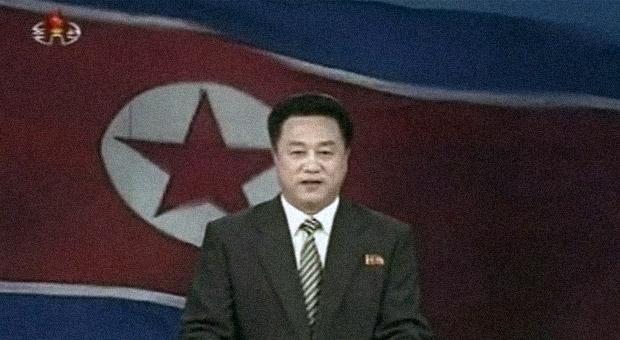
North Korea’s third nuclear test – what’s different this time round?
Yesterday, at around 3:00 GMT, North Korea conducted a third nuclear test. According to the official KCNA news agency, “the test was conducted safely and perfectly at a high level…with a higher-yield, smaller, lighter atomic device” (the full televised report [in Korean] is available here). The Comprehensive Test Ban Treaty Organisation (CTBTO), located in Vienna, soon confirmed that something was amiss on the seismic front, with the detection of ‘an explosion-like event’ on the Korean Peninsula, near to the site of North Korea’s nuclear weapons tests in 2006 and 2009. The timing of the 2013 test is not unexpected and the US and China were notified in advance. Some will read into the fact that the timing clashes with Obama’s State of the Union address. Others will point to the anniversary of former leader Kim Jong IL’s birthday on 16 February,. The timing of such things is not a precise science, however, and a number of factors, political and non-political (such as the weather), need to be considered. In any event, for us nuclear wonks, timing is less important. What matters more is reflected in the current scramble among experts to verify and identify the technical details: the exact yield and type of device, as well as the political and security implications of the test, regionally and globally.
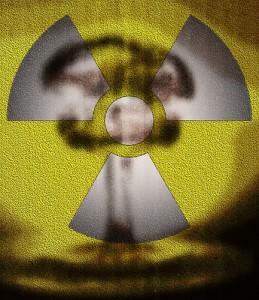
Iran and the Threat of Nuclear Weapons: A response to Kenneth Waltz
In a recent interview with The Diplomat, Professor Kenneth Waltz discussed the advantages of Iran acquiring nuclear weapons. An eminent and lucid scholar, Waltz committed the error of trying to fit an incorrect piece of a puzzle into a coherent theory. His theory whereby nuclear powers have never gone to war against each other has, so far, proven to be right. However, trying to extend this fact in a mechanical manner into a future scenario involving Iran is questionable. To begin with, the leadership of Iran, as distinct from that of any other of the current nuclear powers, has called for the destruction of its enemy as a sovereign entity. It has made it clear, time and again, that …
Iran and the Nuclear Negotiations in Moscow: The ‘give and take’ of sensitive technology
“Until recently having or not having nuclear weapons appeared to be and was treated as a question of yes or no”, wrote Thomas Schelling in a piece called ‘Who Will have The Bomb’, written in 1976 following India’s first use of a ‘peaceful’ nuclear explosive (PNE). “From now on it will make more sense to describe a country’s nuclear-weapons status not with a yes or a no but with a time schedule”. When this was written, India’s first PNE was viewed by the international community as a lesson learned; it was clearly an example of sensitive technology and nuclear material for peaceful purposes being diverted towards military use. It was alleged that the Indian test had been carried out using plutonium from the CIRUS …
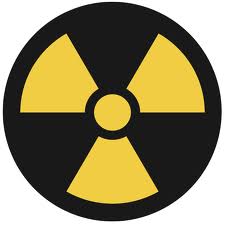
A Lot of Talk: the Seoul Nuclear Security Summit accomplished little
The recently concluded two day Nuclear Security Summit in Seoul (March 26-27) ended with a promise to meet again. It was a follow-up to the first summit in Washington and participants will gather in the Netherlands in 2014 for what will be the third (and final) global summit of its kind. As the name suggests, the focus of the 2012 summit was ‘nuclear security’, a term not to be confused with nuclear plant safety or nuclear safeguard rules set by the International Atomic Energy Agency (IAEA). In simple terms, ‘nuclear security’ is an effort to prevent the use of an atomic bomb by terrorists or illicit actors and provide security against nuclear terrorism. To this end the key participating countries pledged …
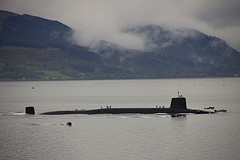
Forget the spending row: Nuclear deterrence is cheap at the price
My Oxford colleague Blake Ewing makes an engaging case in favour of the UK pursuing unilateral nuclear disarmament — that is, scrapping the planned replacement programme for the Royal Navy’s Vanguard-class submarines, which currently carry the Trident D5 missile — as a solution to the country’s fiscal travails. Blake and I agree on many things. The folly of cutting the BBC World Service, one of the UK’s unique sources of global influence, is one. The wisdom — or lack thereof — of pursuing or retaining nuclear weapons as a status symbol is another. The merits of avoiding doctoral dissertation work by engaging in procrastinatory blogging would appear to be a third. However, on the question of unilateral disarmament, our advice to …
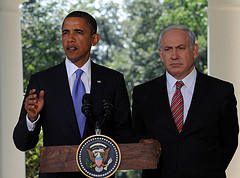
Obama must stand up to Netanyahu
Reposted here is my op-ed in today’s Independent on Obama’s meeting with Netanyahu. It is clear what kind of Israeli prime minister President Obama will be receiving at the White House today. Benjamin Netanyahu is a bellicose, right-wing Israeli nationalist, a rejectionist on the subject of Palestinian national rights, and a reactionary who is deeply wedded to the status quo. Nationalism has an in-built tendency to go to extremes and Netanyahu’s brand is no exception. A nation has been defined as ‘a group of people united by a mistaken view about the past and a hatred of their neighbours’. This definition fits the Likud leader on both counts: he has a selective and self-righteous view of his own country’s history and …









